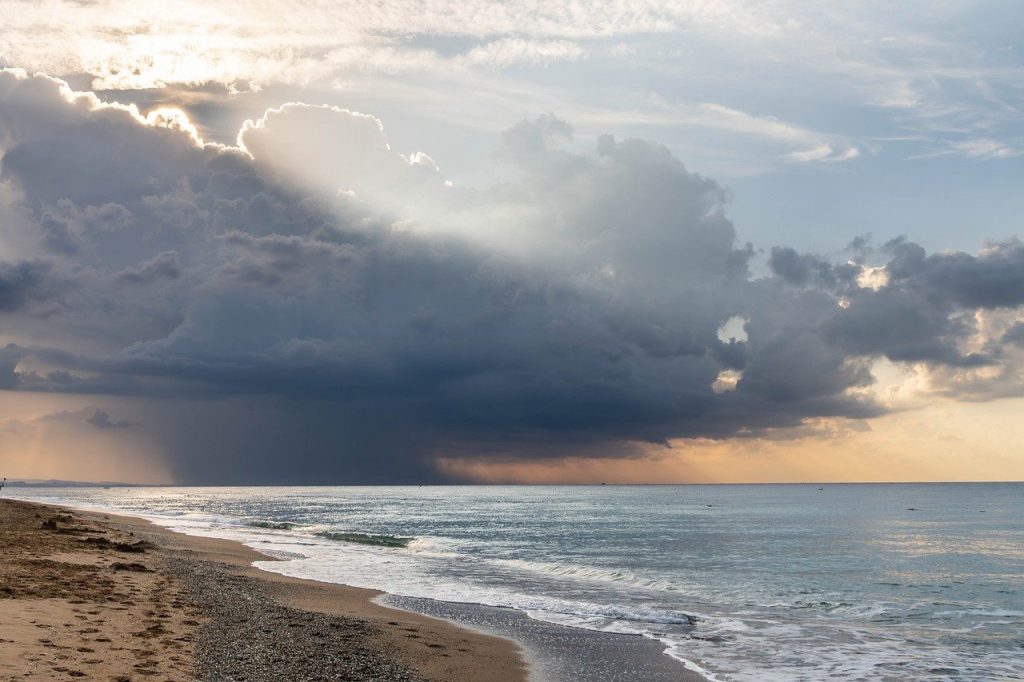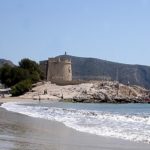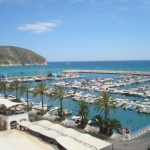Nestled on the southeastern coast of Spain, Moraira is a gem of the Costa Blanca, boasting a Mediterranean climate that attracts visitors and expatriates from around the globe. The town’s weather patterns and temperatures throughout the year present a compelling case for those seeking a balance of warm summers and mild winters. This article provides an in-depth exploration of Moraira’s climate, detailing monthly temperature averages, precipitation patterns, and unique weather characteristics that define each season.
Understanding Moraira's Mediterranean Climate
Moraira's climate is classified as Mediterranean, characterized by hot, dry summers and mild, wet winters. This climate type, typical of coastal areas in the Mediterranean basin, is influenced by the town's proximity to the sea, which moderates temperatures year-round.
Spring in Moraira: March to May
Spring in Moraira is a season of rejuvenation, with average temperatures gradually rising from 13°C (55°F) in March to a more comfortable 18°C (64°F) by May. Precipitation during these months is moderate, with occasional showers that bring the landscape to life. The sea temperature, still cool from the winter, begins to warm up, making late spring an inviting time for the first swims of the year.
Summer: June to August
Summer is the peak season for Moraira, drawing visitors with its promise of sun-drenched days and lively coastal atmosphere. Average temperatures hover around 26°C (79°F) but can peak to 30°C (86°F) or higher in July and August. Rainfall is scarce, with less than 20mm (0.79 inches) per month, ensuring that almost every day is a beach day. The warm sea temperatures, reaching up to 25°C (77°F), make swimming, snorkeling, and water sports particularly enjoyable.
Autumn: September to November
Autumn sees a gradual cooldown, with average temperatures dropping from 24°C (75°F) in September to 16°C (61°F) by November. This season is characterized by a mix of sunny days and increased rainfall, particularly in October and November, as the climate transitions towards winter. The sea remains warm enough for swimming in early autumn, but by late November, it begins to cool significantly.
Winter: December to February
Winters in Moraira are mild compared to much of Europe, with average temperatures ranging from 11°C (52°F) to 16°C (61°F). While it is the wettest season, with December and January seeing the highest precipitation levels, sunny days are still common, offering a pleasant climate for outdoor activities. Snow is extremely rare, and frost is almost unheard of, thanks to the moderating influence of the Mediterranean Sea.
Year-Round Weather Events and Activities
Moraira's climate supports a variety of activities throughout the year. From June to August, the town buzzes with festivals, beach activities, and alfresco dining. The mild weather of spring and autumn is ideal for hiking and exploring the scenic surroundings, including vineyards and historic sites. Winter, with its quieter pace, is perfect for golfing, cycling, and enjoying the local cuisine without the summer crowds.
Climate Adaptations and Sustainability
As climate change impacts weather patterns globally, Moraira, like many Mediterranean locales, faces challenges such as water scarcity and heatwaves. The town and its residents are increasingly adopting sustainable practices, from water conservation measures to promoting local agriculture, to mitigate these effects and ensure that its climate remains as welcoming as ever.
Conclusion
Moraira’s climate is a significant draw for those seeking a destination with warm summers, mild winters, and an abundance of sunny days. Its weather patterns support a wide range of activities year-round, making it an attractive location for both short visits and long-term stays. As the world evolves, Moraira continues to adapt, ensuring that its natural beauty and inviting climate can be enjoyed for generations to come. Whether you're drawn to its beaches in the summer or its peaceful ambiance in the winter, Moraira offers a climate that caters to every preference, underscored by the charm and warmth of the Mediterranean.
Frequently Asked Questions (FAQs)
What is the average temperature in Moraira during the summer?
In summer, Moraira experiences average temperatures around 26°C (79°F), with peaks that can surpass 30°C (86°F).
Can you swim in the sea in Moraira during winter?
While winter sea temperatures are cooler, mild days may still allow for comfortable swimming, especially for those accustomed to colder waters
Does it rain a lot in Moraira?
Moraira has a Mediterranean climate with dry summers and mild, wetter winters. The highest rainfall occurs in December and January, but sunny days are common year-round
What are the best activities to do in Moraira based on its climate?
The climate supports various activities, including beach visits and water sports in summer, hiking and exploring in spring and autumn, and golfing and cycling during the mild winters
How is Moraira adapting to climate change?
Moraira is adopting sustainable practices like water conservation and promoting local agriculture to mitigate the effects of climate change and preserve its inviting climate




